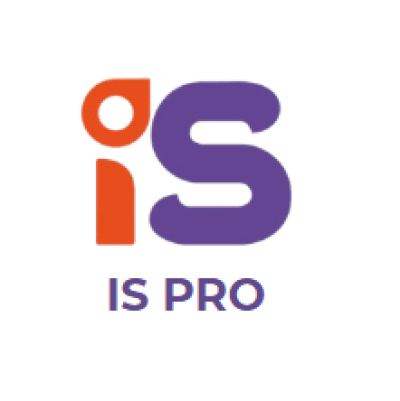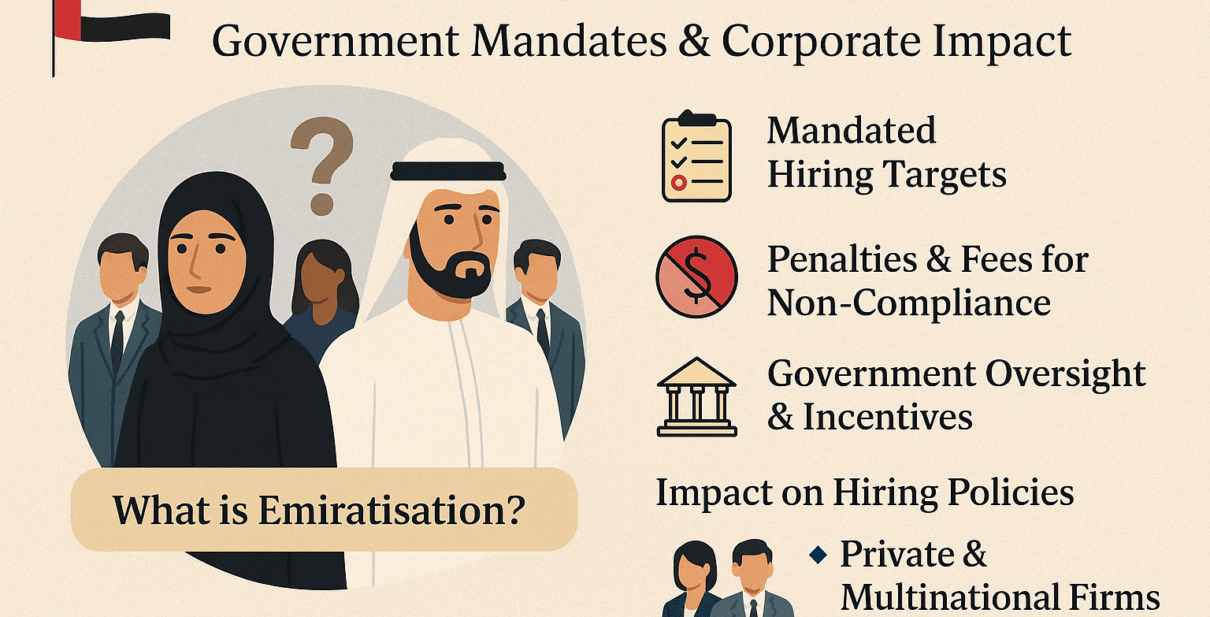1. What is Emiratization?
Emiratisation (also spelled Emiratization) is a strategic government initiative aimed at increasing the representation of Emirati nationals in both public and private sector roles. Its core goal is to build a sustainable, skilled local workforce while lessening reliance on expatriate labour Newland Chase+15Wikipedia+15The Sovereign Group+15.
2. Mandated Hiring Targets
- 2023 Onwards (≥50 skilled employees): Companies must have 4% of their skilled workforce comprised of Emiratis, with a 1% increase every 6 months, targeting 10% by 2026 manpowergroup.ae.
- 2024–2026 (20–49 employees in 14 sectors):
- 2024: At least 1 Emirati hire
- 2025: At least 2 Emiratis warwicklegal.com+5UAE Government Portal+5The Sovereign Group+5manpowergroup.ae.
3. Penalties & Fees for Non-Compliance
- Large firms (≥50 employees): AED 6,000/month per unfilled Emirati position in 2023, increasing AED 1,000 annually. The Sovereign Group.
- Smaller firms (20–49 employees):
- 2024: AED 96,000 per missing Emirati hire
- 2025: AED 108,000 The Sovereign GroupNewland Chase+3UAE Government Portal+3The Sovereign Group+3.
4. Government Oversight & Incentives
MoHRE enforces compliance via audits and can suspend work permits or business licenses for noncompliance. Wikipedia+3UAE Government Portal+3The Times of India+3. At the same time, incentives under schemes like NAFIS include training subsidies, recruitment support, and potential awards for firms hitting or exceeding targets.
Impact on Hiring Policies
🔹 Private & Multinational Firms
Strategic Hiring Adjustments
- Larger quota-mandated sectors (banking, finance, insurance) may have to exceed base 4% quotas, sometimes up to 20%.
- Workforce planning now must include Emirati-targeted recruitment pipelines, partnerships with local universities, and bespoke training initiatives, often supported by NAFIS.
Talent-Sourcing Channels
- Major reliance on Emirati-specific job platforms such as the NAFIS portal, which 72% of Emirati job seekers find most effective, according to PwC.
Compensation & Benefits
- Emiratis often value job security, career progression, and work-life balance. Private-sector roles thus compete by offering flexible schedules, clearer career paths, and enriching work cultures at PwC.
Retention Challenges
- Public sector roles are traditionally preferred for their stability. Private companies must enhance the employee proposition and support retention through mentorship, advancement opportunities, and culture fit.
🔹 Multinationals in the UAE
Policy Compliance Meets Global Standards
- MNCs must layer Emiratisation quotas on top of their existing global HR frameworks.
- Success depends on culturally informed onboarding programs, leadership training, and local integration efforts.
Balancing Localization & Expat Expertise
- Companies face the tightrope between meeting quotas and maintaining performance. Multinationals are exploring hybrid models, combining Emirati leadership with expatriate technical expertise.
Challenges & Opportunities
| Challenge | Implication | Corporate Response |
| Low Emirati interest in private jobs | Key skills and expectations gap | Offer competitive compensation & meaningful job design |
| Workplace culture differences | Integration issues | Cultural bridging, mentoring, and DEI training |
| Quota pressure & retention | Higher churn risk | Enhanced L&D, flexible policies, internal mobility |
| Monitoring & compliance risk | Administrative burden | Dedicated MoHRE liaison roles |
Key Takeaways for Employers
- Know your mandate: Understand your company’s tier and annual Emiratization targets.
- Proactive recruiting: Use NAFIS and local universities; forge internship and graduate schemes.
- Competitive packages: Match cultural and career expectations through tailored benefits.
- Cultural integration: Offer mentorship, leadership coaching, and inclusive workplace initiatives.
Robust compliance: Monitor hiring, document processes, and stay proactive with MoHRE guidelines.


